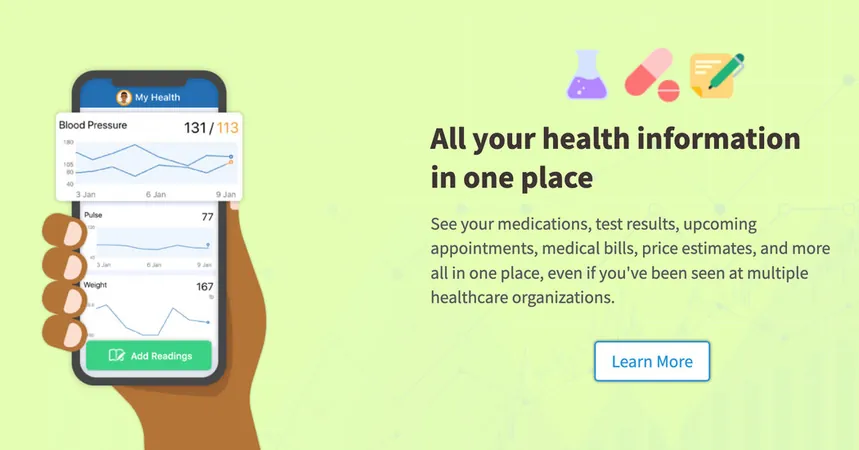
Is Your Doctor's Response Coming from a Machine? The Rise of AI in Patient Communication
2024-09-24
Author: Jessica Wong
Introduction
In today's digital healthcare landscape, platforms like MyChart have become essential for patient-doctor communications, allowing patients to share symptoms and health concerns with the click of a button. However, a startling trend is emerging: the responses to these messages are increasingly being drafted by artificial intelligence (AI).
The Role of AI in Healthcare Communication
Approximately 15,000 healthcare professionals across more than 150 health systems are now utilizing a new feature called "In Basket Art" within MyChart. This AI technology helps draft replies based on the patient's previous messages and their electronic medical records. Yet, many patients are completely unaware that they may be receiving AI-assisted responses, as health systems do not uniformly disclose this practice.
Concerns Raised by Experts
Experts voice concerns over this trend, suggesting that the integration of AI into clinical correspondence may lead to overlooked errors in critical medical communications. While traditional uses of AI in healthcare have primarily focused on administrative tasks—like summarizing appointment notes—this shift towards AI involvement in direct patient interactions raises ethical dilemmas regarding the sanctity of the doctor-patient relationship.
Impact on Workload and Burnout
MyChart aims to streamline communication, allowing healthcare providers to engage more like editors while reducing their workload. However, studies indicate that while AI can alleviate feelings of burnout among medical professionals, it hasn't necessarily expedited response times.
Transparency and Trust Issues
The rollout of this technology has been met with varying approaches regarding patient transparency. Some health systems, like U.C. San Diego Health, openly label their AI-generated messages, while others believe that such notifications could erode trust, leaving patients feeling misled if they knew their doctor wasn't solely responsible for their message.
Automation Bias and AI Limitations
Critics argue that relying on AI carries inherent risks. Human operators may fall prey to "automation bias," accepting AI's recommendations uncritically—even when they contradict their own expertise. This issue is compounded by the AI's potential to generate inaccuracies, with one healthcare provider recalling a recent instance where an AI-generated message falsely assured a patient they were up to date on their hepatitis B vaccinations—information the AI couldn't accurately assess.
Complexity and Error Rates in AI
Research examining AI models like GPT-4 has revealed troubling patterns, noting that errors can become more pronounced when AI is tasked with answering complex clinical questions. While some providers have attempted to refine the model's capabilities to mirror a clinician's voice, the overarching question remains: Are we jeopardizing genuine human interaction in healthcare by automating communications that should be inherently personal?
Conclusion
The ethical debate about AI's growing role in healthcare is intensifying. As healthcare evolves, questions surface about how technology can enhance patient care without compromising the critical, human dimensions of medical practice. Are we sacrificing the essential dialogue between doctor and patient in favor of efficiency? As AI continues to infiltrate the healthcare sector, one must wonder if it is truly enhancing patient care or merely complicating the physician's role in providing compassionate and individualized healthcare.


 Brasil (PT)
Brasil (PT)
 Canada (EN)
Canada (EN)
 Chile (ES)
Chile (ES)
 Česko (CS)
Česko (CS)
 대한민국 (KO)
대한민국 (KO)
 España (ES)
España (ES)
 France (FR)
France (FR)
 Hong Kong (EN)
Hong Kong (EN)
 Italia (IT)
Italia (IT)
 日本 (JA)
日本 (JA)
 Magyarország (HU)
Magyarország (HU)
 Norge (NO)
Norge (NO)
 Polska (PL)
Polska (PL)
 Schweiz (DE)
Schweiz (DE)
 Singapore (EN)
Singapore (EN)
 Sverige (SV)
Sverige (SV)
 Suomi (FI)
Suomi (FI)
 Türkiye (TR)
Türkiye (TR)
 الإمارات العربية المتحدة (AR)
الإمارات العربية المتحدة (AR)